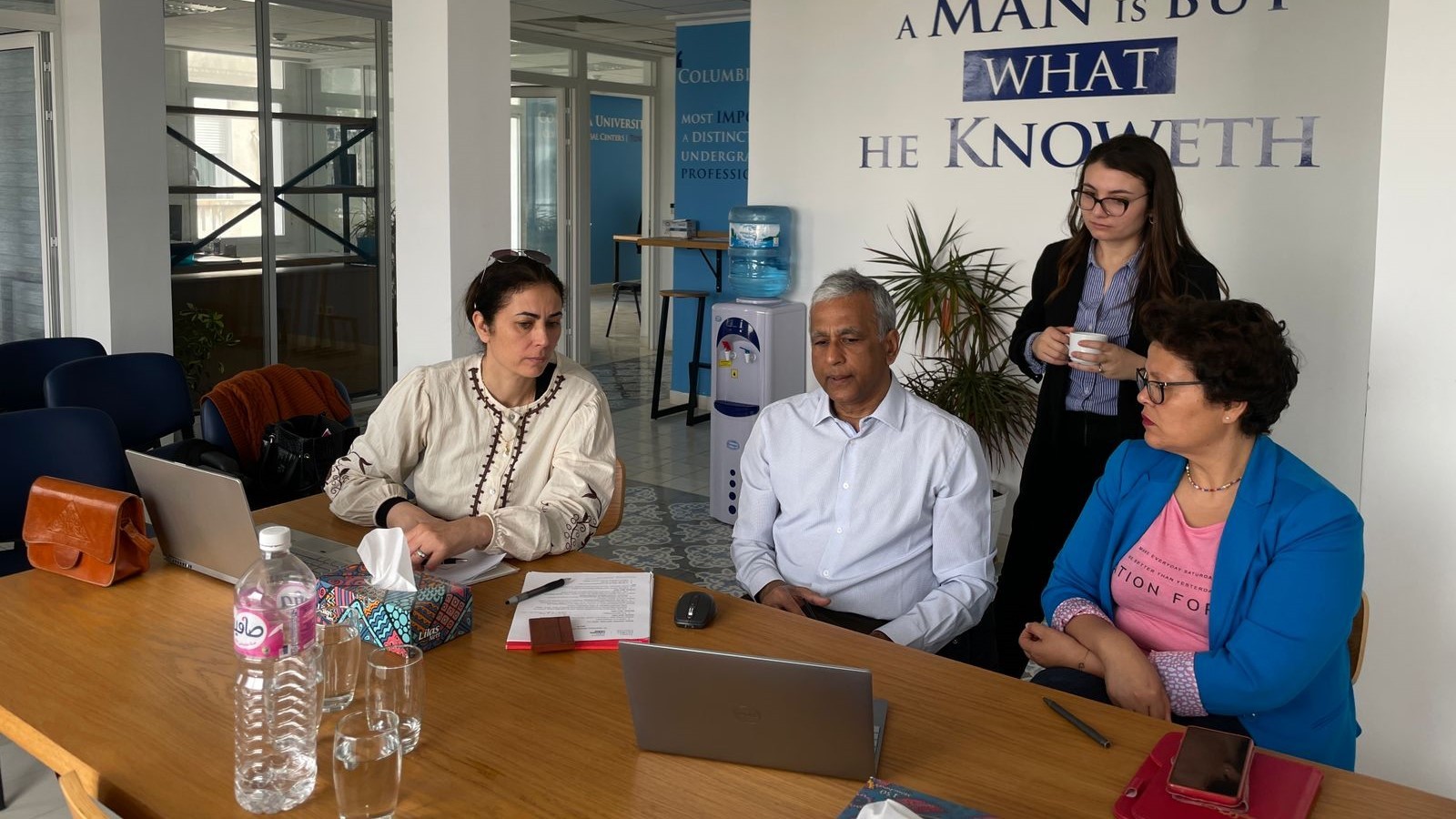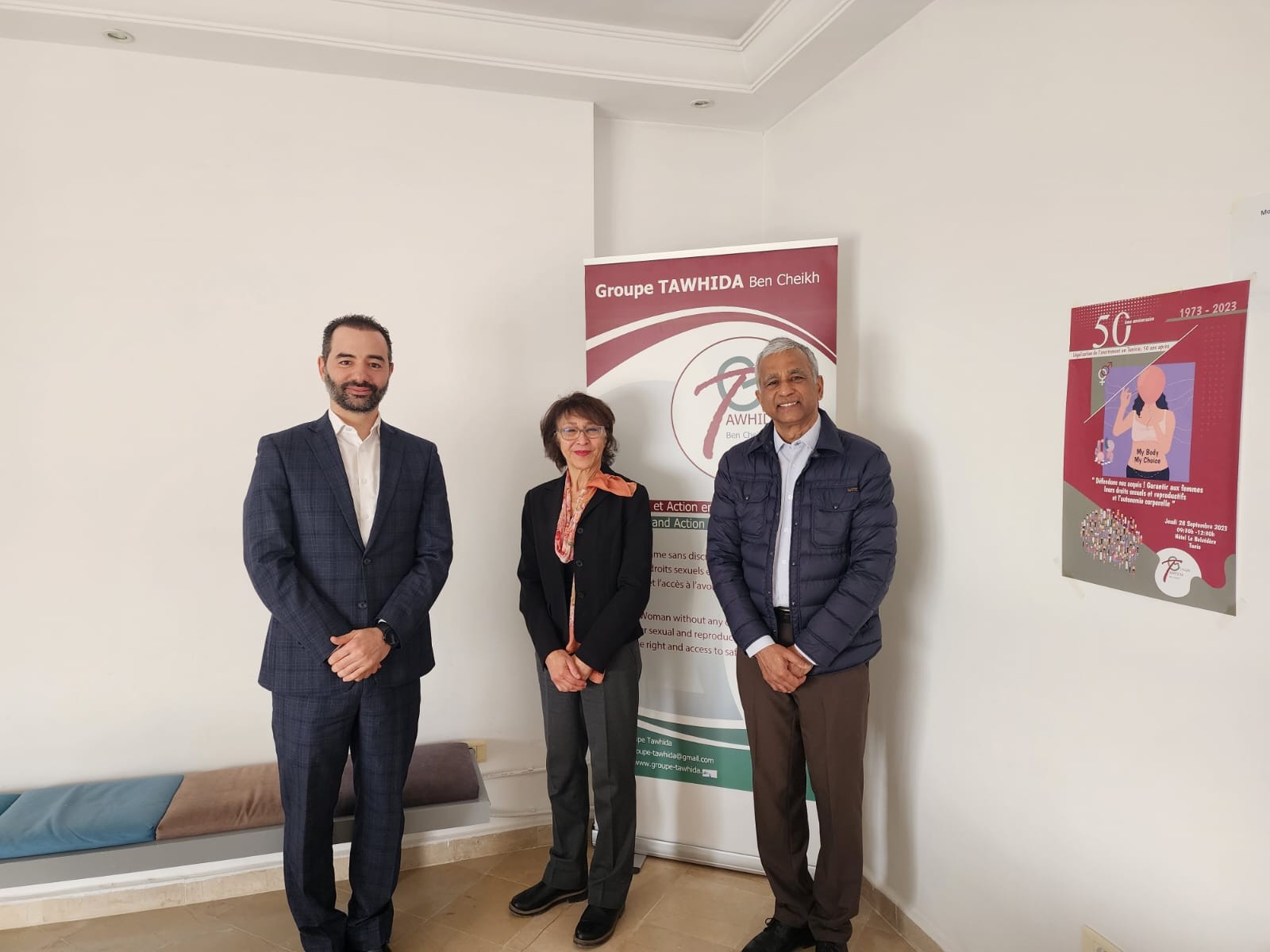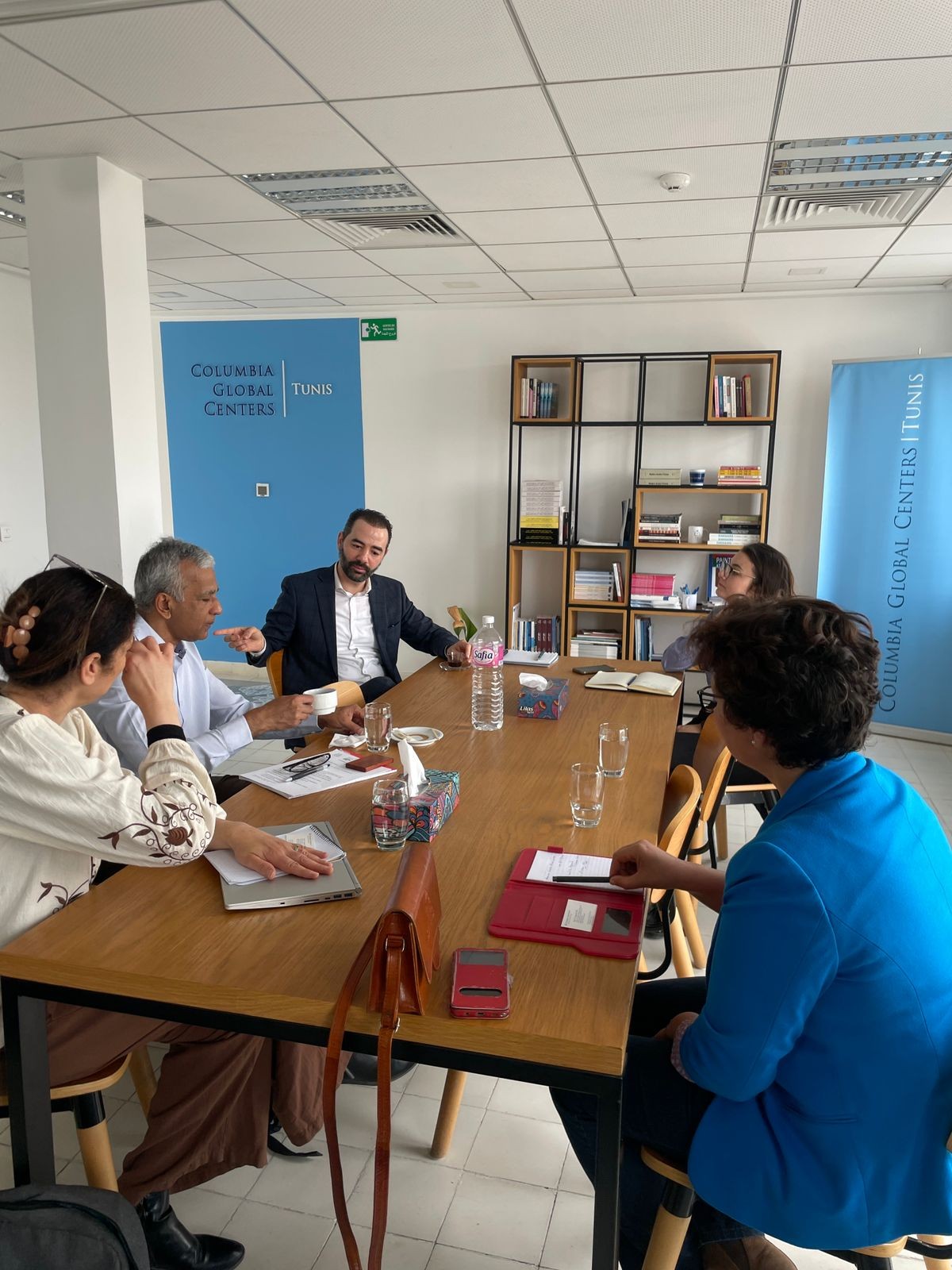Exploring the Potential of Robotics in Tunisia

Pr. Sunil Agrawal, a distinguished Professor at Columbia University's Department of Mechanical Engineering and Department of Rehabilitation and Regenerative Medicine as well as the director of the Robotics and Rehabilitation (ROAR) Laboratory at Columbia University, has returned to Tunisia following the success of last year's collaborative workshop on 'Robotics and Human Health: Assessment and Rehabilitation.' The workshop, jointly organized by Columbia Global Center Tunis, the University of Sousse, and the ROAR Lab, paved the way for innovative discussions and initiatives at the intersection of technology and healthcare.
This time, Pr. Agrawal is in Tunisia to serve as a keynote speaker at the 8th International Symposium on Robotics & Mechatronics, a prestigious event co-sponsored by CGC Tunis. Held in Djerba, Tunisia, the symposium promises to be a gathering of leading minds in robotics and mechatronics from around the world.
Prior to the symposium, Pr. Agrawal engaged in a series of meetings facilitated by CGC Tunis to explore potential collaborations and initiatives in Tunisia. Among the notable figures he met were Dr. Safa Layeb, Lecturer in Industrial Engineering at the National Engineering School of Tunis (University of Tunis); Dr. Lobna Kriaa, Associate Professor at Ecole Nationale des sciences de l'Informatique (University of Lam Manouba); and Dr. Hedia Belhadj, President of Group Tawhida Ben Cheikh and a Columbia alumna.
During these meetings, the discussions revolved around how robotics could be utilized to address various challenges in Tunisia. They explored potential strategies and initiatives to advance the adoption and development of robotics technology in Tunisia, considering the country's unique needs and opportunities, and Africa more generally.
With a particular focus on healthcare, the conversations centered on the transformative potential of robotics in revolutionizing healthcare delivery. The participants discussed the feasibility of implementing robotic-assisted procedures, developing innovative assistive devices to enhance the quality of life for individuals with disabilities, and integrating robotics into public health initiatives to address prevalent healthcare issues.
Pr. Agrawal's expertise and insights, combined with the local knowledge and perspectives of the Tunisian experts, provided a solid foundation for potential collaborations and initiatives. Their discussions laid the groundwork for leveraging robotics technology to benefit Tunisian (and African) society, reflecting a shared vision of harnessing innovation for positive societal impact and fostering the integration of robotics into Tunisia's -and Africa's- evolving technological landscape.

